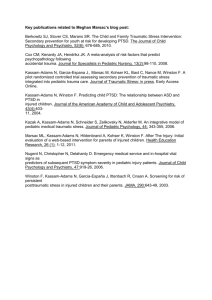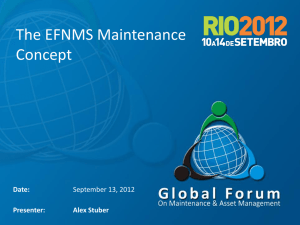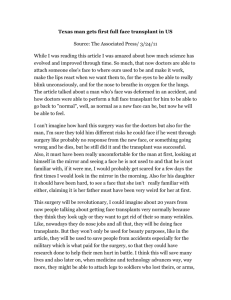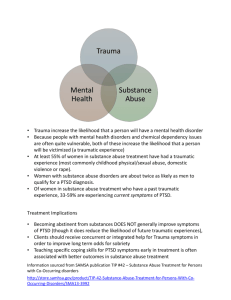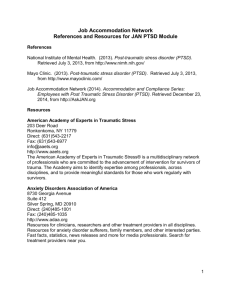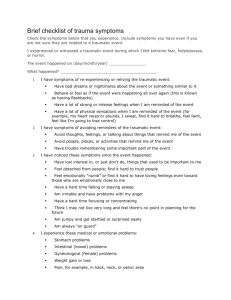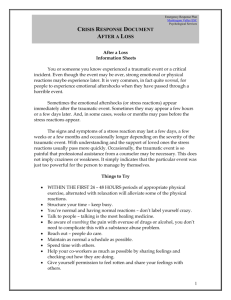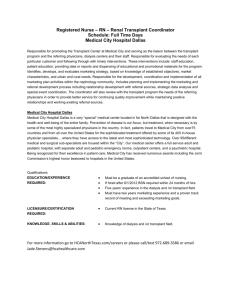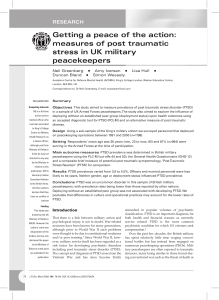Pediatric Transplants Commonly Result in PTSD
advertisement
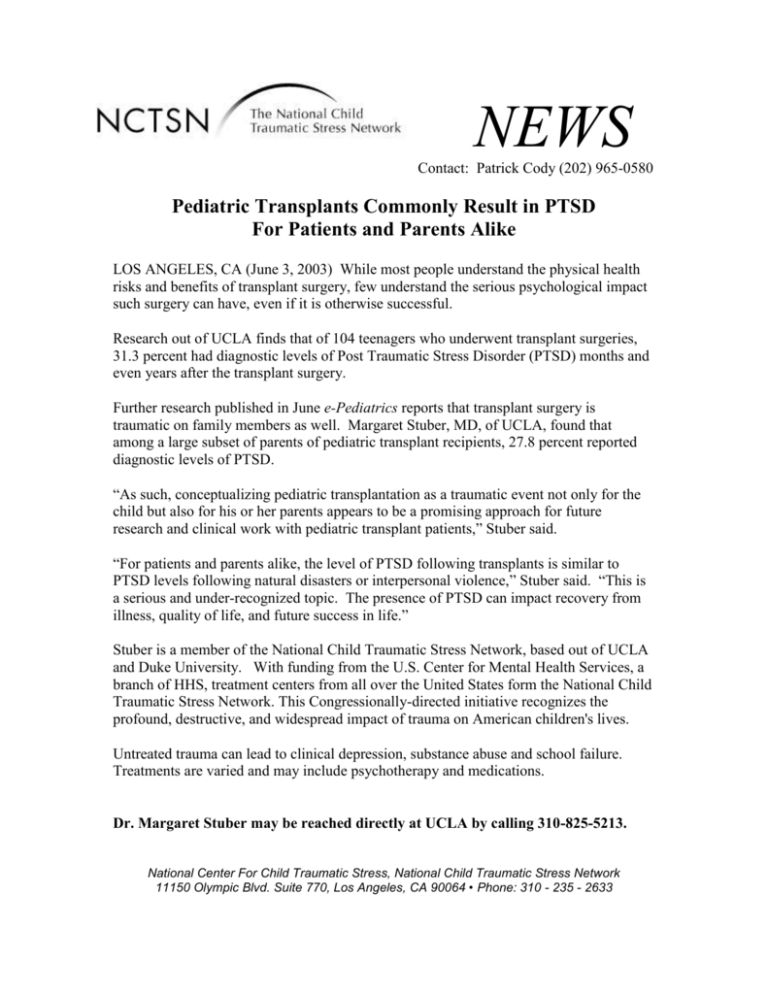
NEWS Contact: Patrick Cody (202) 965-0580 Pediatric Transplants Commonly Result in PTSD For Patients and Parents Alike LOS ANGELES, CA (June 3, 2003) While most people understand the physical health risks and benefits of transplant surgery, few understand the serious psychological impact such surgery can have, even if it is otherwise successful. Research out of UCLA finds that of 104 teenagers who underwent transplant surgeries, 31.3 percent had diagnostic levels of Post Traumatic Stress Disorder (PTSD) months and even years after the transplant surgery. Further research published in June e-Pediatrics reports that transplant surgery is traumatic on family members as well. Margaret Stuber, MD, of UCLA, found that among a large subset of parents of pediatric transplant recipients, 27.8 percent reported diagnostic levels of PTSD. “As such, conceptualizing pediatric transplantation as a traumatic event not only for the child but also for his or her parents appears to be a promising approach for future research and clinical work with pediatric transplant patients,” Stuber said. “For patients and parents alike, the level of PTSD following transplants is similar to PTSD levels following natural disasters or interpersonal violence,” Stuber said. “This is a serious and under-recognized topic. The presence of PTSD can impact recovery from illness, quality of life, and future success in life.” Stuber is a member of the National Child Traumatic Stress Network, based out of UCLA and Duke University. With funding from the U.S. Center for Mental Health Services, a branch of HHS, treatment centers from all over the United States form the National Child Traumatic Stress Network. This Congressionally-directed initiative recognizes the profound, destructive, and widespread impact of trauma on American children's lives. Untreated trauma can lead to clinical depression, substance abuse and school failure. Treatments are varied and may include psychotherapy and medications. Dr. Margaret Stuber may be reached directly at UCLA by calling 310-825-5213. National Center For Child Traumatic Stress, National Child Traumatic Stress Network 11150 Olympic Blvd. Suite 770, Los Angeles, CA 90064 • Phone: 310 - 235 - 2633
